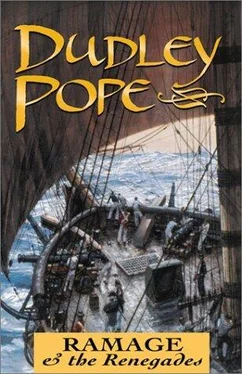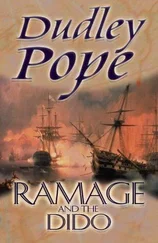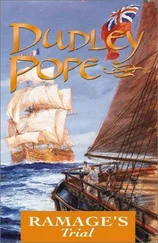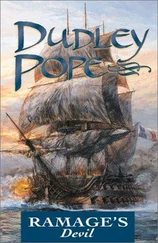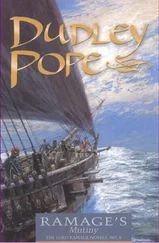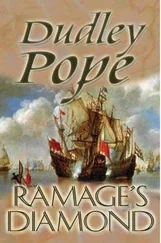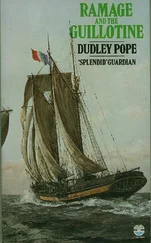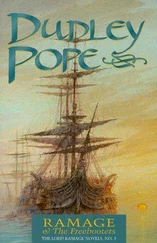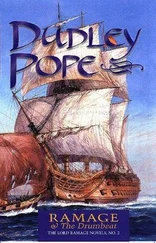'Ah, yes. It says that - well, I'll read the item. "We understand that M. Louis-Guillaume Otto, the French Commissioner for the Exchange of Prisoners, resident in London, has been a frequent visitor at the office of the Secretary of State for Foreign Affairs during recent days. It is believed that M. Otto, who has been living in London since the beginning of the present war, has been acting as an envoy of Bonaparte, discussing proposals from Bonaparte for a general peace.
' "We further understand that Lord Hawkesbury has put Bonaparte's proposals before the Cabinet and that Mr Addington has informed the King of the details. We believe Mr Pitt's supporters are violently against a peace. M. Otto can rely on the support of Mr Fox and his faction.
'"M. Otto has had little official work to do for the past two years: so few French ships put to sea that the Royal Navy cannot take many prisoners. On the other hand the bold British ships are constantly attacking the enemy's coasts and ports and naturally some are lost, so the French have many British prisoners in their jails. Unfortunately few can be exchanged because we do not have enough Frenchmen to make the numbers even."'
Gianna sighed and rearranged the skirt of her pale dress. 'Let us hope Bonaparte's terms are generous.'
The Countess shook her head disapprovingly. 'Gianna, I know you want to go back to Volterra, but don't let us fall into a trap just because we want peace.'
'No, Bonaparte would not be offering terms unless it was to his advantage to end the war,' Nicholas said.
At that moment the Earl came into the room: a tall, still slim man with silvery white hair and the same thin, almost beak-like nose and high cheekbones of his son. Gianna looked from Nicholas to his father. Yes, she thought, that is how Nicholas will be in thirty years' time. For the first time since she had met him, she felt she could think of him in old age: until now he had been at sea, being wounded regularly once a year, being in action at least once a month ... Peace would mean he could resign his commission and live in London and Cornwall.
And now, also for the first time, she could picture him growing old without her beside him. Until recently, she always thought of their lives after the war as being lived together, but now, after the years she had lived here in England, mostly at St Kew, she accepted that it was impossible. Noblesse oblige. It was a phrase, but for the two of them it was a code, a law - and for her a sentence of eventual banishment.
In the first couple of years, when she thought of little else than Nicholas and returning to rule her kingdom of Volterra the moment Bonaparte's troops were driven out, she had ignored religion. Yet she was Catholic and Nicholas was Protestant. Marriage would force Nicholas to agree that their children would be Catholic, and in turn that would mean one of the oldest earldoms in Britain would become Catholic the moment Nicholas died after inheriting from his father.
The twelfth Earl of Blazey a Catholic... For the first year or two in England she could see no difficulty about such an old Protestant earldom changing its religion to Rome, but eventually she had come to understand that Britain was built on Protestant foundations, and to ask Nicholas (who would be the eleventh earl when he inherited from his father) to sacrifice the earldom - for that was how it would be regarded - was something that an enemy might do, but not the woman who loved him.
Her other plans - she saw now they were but dreams - were equally impractical, because of that same phrase. Her idea that Nicholas would resign his commission after the war and come to Volterra as her husband was hopeless, and Nicholas himself had made that clear. Volterra, still turbulent after years of French occupation and no doubt still affected by the talk of French revolutionaries, would be in no mood to accept a straniero as their ruler's husband; not even one who spoke Italian as well as any of them and who had rescued their ruler from Bonaparte's troops. A foreigner was someone from the next state; to some people a man from the next town. She thought that Nicholas might have in mind that she would hand over the kingdom to her heir, her nephew Paolo Orsini, at present serving as a midshipman in Nicholas's own ship but - as she had finally been forced to admit to herself - there were at least two things preventing that. First, Volterra, once liberated, would need a firm ruler for the early years of peace, someone who understood the complicated relations, friendships and enmities of the leading families. Paolo knew nothing of all this, and might well fall victim to an assassin. And secondly, his life was now the sea: it was unlikely he would exchange the Royal Navy for the falsehoods and sycophancy that made up life at Court.
Paolo was a new generation: he had never lived in an atmosphere of noblesse oblige so he would sacrifice nothing for it. For her and Nicholas it was as much a part of life as breathing and, she realized with something approaching bitterness, comparable with breathing: it was always there, unobtrusive, noticeable only when you thought of it, but an essential part of life itself.
Her other dream, after recognizing that the people of Volterra would not accept Nicholas as her husband, was to have Nicholas sent there as His Britannic Majesty's Envoy Extraordinary and Minister Plenipotentiary. The ruler could summon the British Ambassador as frequently as she wished. Yet she knew that neither she nor Nicholas could accept such a relationship.
This was all in the past and in the future . . . Miserably, knowing she would eventually have to sacrifice her first and probably only real love, she wrenched herself back to the present. She watched Nicholas talking with his mother. The suntan was wearing off, and his brown eyes were just as deeply sunk beneath eyebrows that were like tiny overhanging cliffs, but the lines were going: years of squinting in tropical and Mediterranean sun, and commanding one of the King's ships in actions that usually resulted in a long dispatch in the London Gazette, had left pencil-thin lines on his brow, round his eyes and beside his nose, but they were disappearing as he relaxed here in Palace Street. Nor did he have the worry of the ship: the Calypso was having an extensive refit in drydock at Chatham, and from what he and his father could find out at the Admiralty, he would stay in command when she was commissioned again. Unless . . . unless a peace treaty was signed.
Then, she gathered, at least three-quarters of the King's ships would be paid off; the Royal Navy would be reduced to a peacetime size. Admirals, captains, lieutenants - there would be dozens to spare. Nicholas might resign his commission because the routine of commanding a ship in peacetime would be too boring for him after the past years of continuous excitement and action.
Yet Nicholas's mother and father seemed almost hostile to the proposal of peace. No, Gianna corrected herself, not to peace itself but to dealing with Bonaparte. Well, no Tuscan trusted a Corsican, and if she was honest and dispassionate about it she did not trust Bonaparte either: he was the general who led the French army which invaded Volterra. Yet ironically but for Bonaparte she would never have met Nicholas, whose frigate had been sent to rescue her by Sir John Jervis (as he then was, but now Admiral the Earl St Vincent, First Lord of the Admiralty in the present government). So but for Bonaparte - and St Vincent - they would never have met and fallen in love.
Dreamily she returned to the Palace at Volterra: she pictured herself in the great state room, sitting in the chair reputed to be eight hundred years old. The big double doors would be flung open, His Britannic Majesty's envoy would be announced, and Nicholas in full diplomatic uniform would march in to present his credentials. Both of them would be hard put to keep straight faces . . .
Читать дальше
